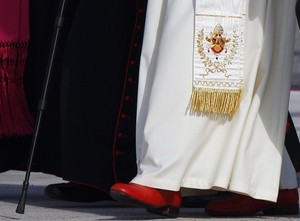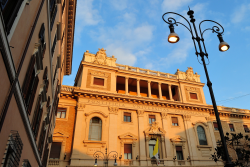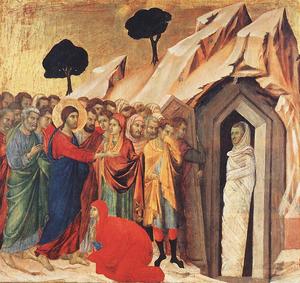 Before Your own death, O Christ, You raised from death
Lazarus, who was four days dead, and You have shaken the dominion of death. Through
the one man whom You loved, You have foretold the deliverance of all from
corruption. We therefore worship You and cry: Blessed are You, O Savior!
Have mercy on us!
Before Your own death, O Christ, You raised from death
Lazarus, who was four days dead, and You have shaken the dominion of death. Through
the one man whom You loved, You have foretold the deliverance of all from
corruption. We therefore worship You and cry: Blessed are You, O Savior!
Have mercy on us!
Paul Zalonski: March 2012 Archives
 Before Your own death, O Christ, You raised from death
Lazarus, who was four days dead, and You have shaken the dominion of death. Through
the one man whom You loved, You have foretold the deliverance of all from
corruption. We therefore worship You and cry: Blessed are You, O Savior!
Have mercy on us!
Before Your own death, O Christ, You raised from death
Lazarus, who was four days dead, and You have shaken the dominion of death. Through
the one man whom You loved, You have foretold the deliverance of all from
corruption. We therefore worship You and cry: Blessed are You, O Savior!
Have mercy on us!
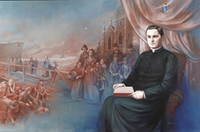 In 1882, Father Michael J. McGivney, a priest of the Diocese of Hartford, founded the Knights of Columbus. On this day, the Knights observe "Founder's Day", the on which the Connecticut Legislature recognizes the KofC as a fraternal benefit Society.
In 1882, Father Michael J. McGivney, a priest of the Diocese of Hartford, founded the Knights of Columbus. On this day, the Knights observe "Founder's Day", the on which the Connecticut Legislature recognizes the KofC as a fraternal benefit Society.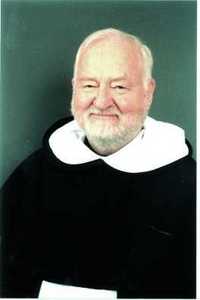 Earlier today Dominican Father Kevin O'Rourke, 84, died following being stricken by a stroke.
Earlier today Dominican Father Kevin O'Rourke, 84, died following being stricken by a stroke.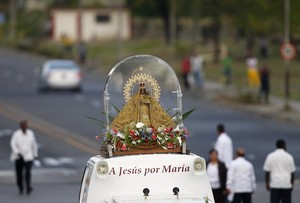 A rose among thorns. Well, almost. Man and woman
always want to give an expression of love and affection to another. In the
course of history you will notice the gifts of love's sentiment and reality
given to God, the Blessed Virgin Mary and the saints. Visit a shrine where
healings are reported and you'll notice tokens of gratitude: lockets, flowers, chalices, artwork, and the like. One beautiful gift of
love was given by Pope Benedict Monday evening to the Virgen de la Caridad de
Cobre in Cuba: a golden rose. The papal gift of a golden rose dates back to the
middle ages when a pope held a golden rose in a procession on Laetare Sunday,
the fourth Sunday of Lent. It was Pope Eugene III who called the rose a sign of
Christ's passion: the gold symbolizing the resurrection and the thorns the
suffering.
A rose among thorns. Well, almost. Man and woman
always want to give an expression of love and affection to another. In the
course of history you will notice the gifts of love's sentiment and reality
given to God, the Blessed Virgin Mary and the saints. Visit a shrine where
healings are reported and you'll notice tokens of gratitude: lockets, flowers, chalices, artwork, and the like. One beautiful gift of
love was given by Pope Benedict Monday evening to the Virgen de la Caridad de
Cobre in Cuba: a golden rose. The papal gift of a golden rose dates back to the
middle ages when a pope held a golden rose in a procession on Laetare Sunday,
the fourth Sunday of Lent. It was Pope Eugene III who called the rose a sign of
Christ's passion: the gold symbolizing the resurrection and the thorns the
suffering.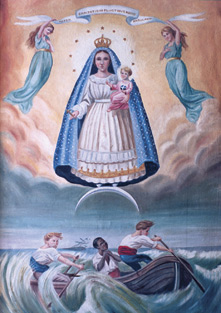
Pope Benedict speaking at the Welcome Ceremony in Cuba said, he comes as a pilgrim of charity to strengthen the people in faith. 14 years ago Blessed John Paul II was in Cuba.
The pontiff acknowledges that Cuba is looking to the future to broaden its horizons based on the spiritual and moral values which stand out in the many the notable people of Cuban history which serve all peoples.
Benedict takes on selfish government practices and intellectual, spiritual and cultural demise, by looking to the deep need for reconciliation by hope and bringing people together.
The Pope comes to kneel down in front of Our Lady of Charity on the 400th anniversary of her appearance in Cuban. For the Pope, and therefore for us, he notes truth that the Holy Virgin formed our Christian identity (our roots) were and continue to shape the soul. It is the Virgin Mary who is the keystone of the true identity of the Cuban people pointing to her Son, Our Lord Jesus Christ.
This is the beginning of yet another revolution in Cuba, actually, it is the Papal Revolution, Part II.
The Pope's text follows:
Thank you, Mr President, for your welcome and your kind words, with which you also conveyed the sentiments of respect of the Cuban government and people for the Successor of Peter. I greet the civil authorities here present, as well as the members of the diplomatic corps. I cordially greet the President of the Episcopal Conference, Archbishop Dionisio Guillermo García Ibáñez of Santiago de Cuba; the Archbishop of Havana, Cardinal Jaime Ortega y Alamino, and my other Brother Bishops of Cuba, and I assure them of my deep spiritual closeness. Finally, I greet with heartfelt affection all the faithful of the Catholic Church in Cuba, the beloved people of this beautiful island, and all Cubans wherever they may be. You are always present in my heart and prayers, especially in the days preceding the much anticipated moment of my visit to you, which the grace and goodness of God has made possible.
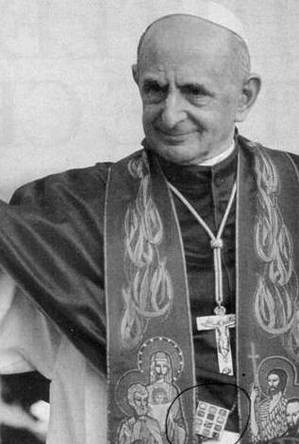 Today is the 45th anniversary of Populorum Progression (On the Development of Peoples) the 5th encyclical of the Servant of God Pope Paul VI. The 18,000 word letter deals with the socioeconomic issues of world sick building upon Blessed John XXIII's Mater et Magistra.
Today is the 45th anniversary of Populorum Progression (On the Development of Peoples) the 5th encyclical of the Servant of God Pope Paul VI. The 18,000 word letter deals with the socioeconomic issues of world sick building upon Blessed John XXIII's Mater et Magistra. 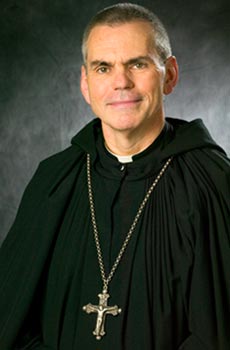 This is old news by now, and yet it bears keeping in mind that one of the world's longest serving abbot, Benedictine Father Abbot Matthew Leavy, OSB, PhD, will retire as the 4th abbot of Saint Anselm's Abbey in Manchester New Hampshire after 26 years of service to his monastic community, Saint Anselm's College, and the Church in the Diocese of Manchester.
This is old news by now, and yet it bears keeping in mind that one of the world's longest serving abbot, Benedictine Father Abbot Matthew Leavy, OSB, PhD, will retire as the 4th abbot of Saint Anselm's Abbey in Manchester New Hampshire after 26 years of service to his monastic community, Saint Anselm's College, and the Church in the Diocese of Manchester.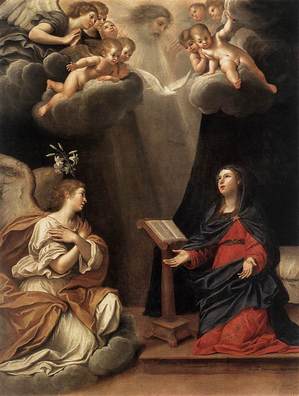 The mystery of the annunciation to Mary is not just a
mystery of silence. It is above and beyond all that a mystery of grace.
The mystery of the annunciation to Mary is not just a
mystery of silence. It is above and beyond all that a mystery of grace. At Vespers (evening prayer) with the gathered bishops of Latin America at the Cathedral-Basilica of Our Lady of Light, (Leon, Guanajuato, Mexico) this evening the Holy Father address the following homily. His thoughts turn our attention to a deeper fidelity in belonging to Christ, being true in communion with others, rooted and ground in Love. The homily is terrific, he hits on some real significant issues that concern the Catholic Faith and the promotion of Justice. But I can't help thinking that the Pope is treating this pastoral visit as a giant Ad limina.
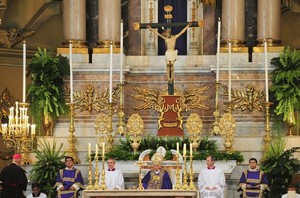
It gives me great joy to be able to pray with all of you in this Basilica-Cathedral of León, dedicated to our Lady of Light. In the lovely painting venerated in this basilica, the Blessed Virgin holds her Son in one hand with immense tenderness while extending her other hand to succour sinners. This is how the Church in every age sees Mary. We praise her for giving us the Redeemer and we put our trust in her as the Mother whom her divine Son bequeathed to us from the Cross. For this reason, we invoke her frequently as "our hope" because she has shown us Jesus and passed down to us the great things which God constantly does for humanity. She does so simply, as a mother teaches her children at home.
A decisive sign of these great things is given to us in the reading just proclaimed at these Vespers. The people of Jerusalem and their leaders did not acknowledge Christ, yet, by condemning him to death, they fulfilled the words of the prophets (cf. Acts 13:27). Human evil and ignorance simply cannot thwart the divine plan of salvation and redemption. Evil is simply incapable of that.
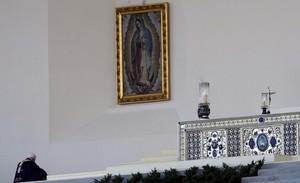
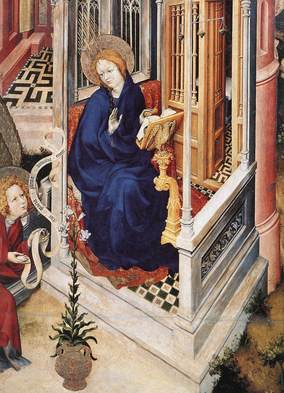 Mary would never see the world in the same way again because she had conceived beneath her heart, The Word, the Son of God made flesh within her. The Word from the mind of God now in her being...She would now have to see everything through the eyes of that Word and everything would change. "Nothing would again be causal and small, but everything with light invested," (J. Duffy, "The Annunciation"). Christ, the Light of the World.
Mary would never see the world in the same way again because she had conceived beneath her heart, The Word, the Son of God made flesh within her. The Word from the mind of God now in her being...She would now have to see everything through the eyes of that Word and everything would change. "Nothing would again be causal and small, but everything with light invested," (J. Duffy, "The Annunciation"). Christ, the Light of the World.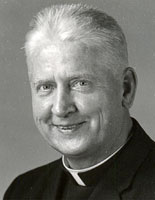 Moving around the circles of the Catholic press is the noteworthy acceptance as valid of the cause of beatification and canonization of Father Walter J. Ciszek, SJ, (1904-84) by the Holy See's Congregation for the Causes of Saints.
Moving around the circles of the Catholic press is the noteworthy acceptance as valid of the cause of beatification and canonization of Father Walter J. Ciszek, SJ, (1904-84) by the Holy See's Congregation for the Causes of Saints. 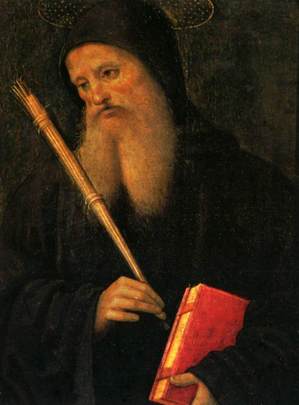
Stir up in your Church, O Lord, the spirit that animated our Father Saint Benedict, that filled with this spirit we may learn to love what he loved and practice what he taught.
Today is the commemoration of the passing of Saint Benedict (known also as the Transitus of Saint Benedict). The monks of Montecassino noted the serenity of his death making him a patron, an advocate for the dying. We attribute something similar to Saint Joseph, whom we celebrated on the 19th.
Those who wear the "St Benedict Medal" will notice on the margin encircling the image of Benedict the Latin words: Eius in obitu nostro præsentia muniamur (May we be strengthened by his presence in the hour of our death)!
I might note, the Medal of Saint Benedict is THE most indulgenced medal the church has and the proper blessing of the medal contains an exorcism. Because of the Saint's love of the Cross and his fighting of Satan, the medal has been known to protect against evil.
Tradition holds,
Six days before he died, Benedict gave orders for his tomb to be opened. Almost immediately he was seized with a violent fever that rapidly wasted his remaining energy. Each day his condition grew worse until finally, on the sixth day, he had his disciples carry him into the chapel where he received the Body and Blood of our Lord to gain strength for his approaching end.
Then, supporting his weakened body on the arms of his brethren, he stood with his hands raised to heaven and, as he prayed, breathed his last.
Pope Saint Gregory the Great, Dialogues, book 2, c. 37.
The feast celebrate today is not so much a feast about the advocacy of a good death --an important aspect of our Christian life life-- as much as it is to hold before our eyes an authentic witness to Jesus Christ and His Gospel. No other saint of the Church as affected the world as Saint Benedict has.
Most holy confessor of the Lord, Saint Benedict, Father of monks and nuns, guide and intercede for the salvation of us all.Rallies will be taking place all over the country this Friday, March 23rd, to voice concerns over the HHS mandate. Visit online: Stand Up for Religious Freedom.
Thousands of Americans of all faiths will be participating in these peaceful rallies, organized by the Pro-Life Action League and Citizens for a Pro-Life Society to oppose the new mandate from the U.S. Department of Health and Human Services (HHS) which is requiring all employers provide free contraceptives, sterilization and abortion-inducing drugs through their health plans, even in violation of their consciences.
Locally, Connecticut as two notable rallies: New Haven and Hartford beginning at noon and will last approximately one hour.
Women are invited to voice their concern and support for freedom at Women Speak for Themselves.
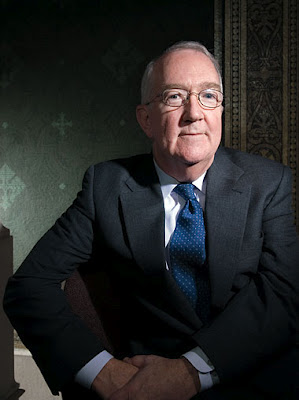 University of Notre Dame announced today that Ken Hackett, the longtime and recently retired president of the Catholic Relief Services, will receive 2012's Laetare Medal. Catholic Relief Services is the Catholic Church in the USA's humanitarian agency. The medal will be awarded on May 20th, the 167th commencement exercise.
University of Notre Dame announced today that Ken Hackett, the longtime and recently retired president of the Catholic Relief Services, will receive 2012's Laetare Medal. Catholic Relief Services is the Catholic Church in the USA's humanitarian agency. The medal will be awarded on May 20th, the 167th commencement exercise.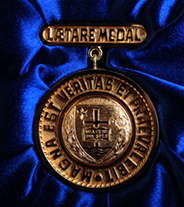
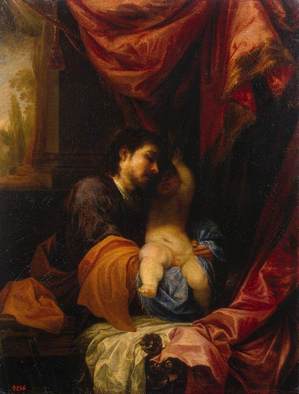 Today is a Solemnity in the Church with the feast of Saint Joseph, Spouse of the Blessed Virgin Mary.
Today is a Solemnity in the Church with the feast of Saint Joseph, Spouse of the Blessed Virgin Mary.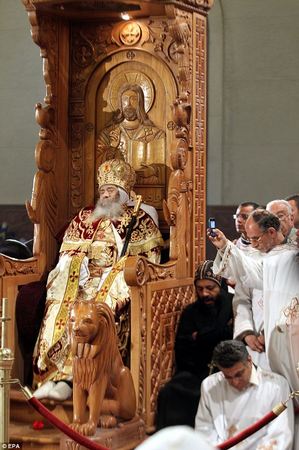
On Saturday, 17
March 2012, Pope Shenouda III, the 117th head of the Coptic Christians died.
Shenouda was the successor of Saint Mark. He led his Church since November
1971. UK's Mail Online has a story of
Pope Shenouda with other photos here. Plus, the Washington Post has an article to
read. Pope Benedict XVI sent this note of condolence to the Coptic
Christians: On learning of the sad departure to God, our common Father, of His
Holiness Shenouda III, Patriarch of Alexandria on the See of Saint Mark the
Evangelist, I wish to express to the members of the Holy Synod, to the priests
and all the faithful of all the Patriarchate, my most sincere brotherly
compassion. I recall with gratitude his commitment to Christian Unity, his
memorable visit to my predecessor Pope Paul VI, and their signing of the Joint
Declaration of Faith in the Incarnation of the Son of God together in Rome, on
May 10, 1973, as well as his Cairo meeting with Pope John Paul II during the
Great Jubilee of the Incarnation, on February24, 2000. I can say how the
Catholic Church as a whole shares the grief that afflicts the Orthodox Copts,
and how she stands in fervent prayer asking that He, who is who is the
Resurrection and the Life, might welcome his faithful servant. May the God of
all mercy receive Pope Shenouda in His joy, His peace and light. When I met Pope Shenouda in St Louis, Missouri in 1994, it was a very interesting experience all around. May God be merciful to him and Saint Mark his steps to paradise. The photo
above is of Pope Shenouda sitting on his throne one last time before burial.
Perhaps the Roman bishops would like to adopt this practice.
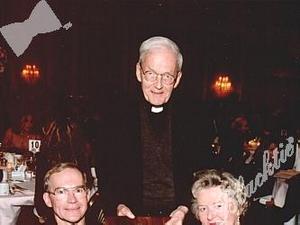
Earlier today I received news that an old friend died, Abbot Luke Rigby. Abbot Luke, 89, was the longtime religious superior of the monks at Saint Louis Priory --later Abbey-- having come from England's famed Ampleforth Abbey to live the Benedictine life.
Both Ampleforth and St Louis are Benedictine monasteries in the English Benedictine Congregation. In the USA Portsmouth and St Anselm's (DC) are also of the English Congregation.
Dom Luke Rigby was appointed the Father Prior of his community succeeding Dom Columba Cary-Elwes in 1967; when the Priory granted independence by Abbot Basil Hume, Father Luke was elected the Conventual Prior by the community beginning in 1973. By grace St. Louis Priory was given abbatial status in 1989 and Prior Luke was elected its first Abbot; he served in this capacity until 1995. As the retired abbot of St Louis the English Benedictine Congregation bestowed on Abbot Luke the honor of being the Titular Abbot of Whitby.
Abbot Luke was a dear man; an insightful leader and a holy man of God. As monks say, he persevered in his vocation. I first met Abbot Luke in 1994 when I first went to St Louis for studies and then became friends with the monks there. Without fail I was received like a brother by Abbot Luke. Thanks be to God for all this.
Abbot Luke died peacefully this morning at Mercy Hospital after a long illness. His Mass of Christian Burial is Saturday, 24 March at Saint Louis Abbey.
From his biography at St Louis Abbey, it is written of Abbot Luke:
The life of this "ordinary fellow" (per his description) starts in London in 1923 in a Catholic family, through whom he is related to Saint John Rigby and other martyrs, priests, and religious of the Recusant period in England. He lived in suburban London in a Catholic environment until his father, a banker, was posted abroad. At this point Abbot Luke became a boarding student at Ampleforth College. He joined the monastery straight after high school.
Two items worth reading:
An Experience of the Eremitic Life: An Experience of the Eremitic Life by Luke Rigby.pdf
The Homily for Abbot Luke's 50th Anniversary of Priesthood: Homily for Abbot Luke's 50th Anniversary of priesthood.pdf
May God grant Abbot Luke mercy and may SaintsBenedict and Scholastica lead him to beatitude.
Saint John Rigby, pray for us.
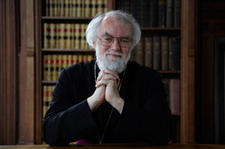
At Lambeth Palace, the home of the archbishops of Canterbury, Rowan Williams, 61, announced his retirement from ministry of Archbishop of Canterbury to take the position of Magdalene College, Cambridge. His new work begins January 2013; he steps down in December. Williams is the 104th Archbishop of Canterbury, a work he's done since 2003.
Williams is known for his kindness, sharp intellect, dedication to striving for harmony among peoples, courage and friendship.
He married Jane in 1981, was ordained a bishop in 1992 and has served widely in ecclesial and academic circles.
The announcement is made here...
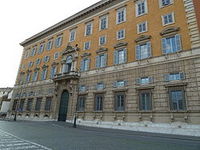
The Pope's office which handles matters pertaining to the Faith, the Congregation for the Doctrine of the Faith, is updating itself. Well, it's updating its presentation of the Faith as it pertains to the documents it produces. The new "look" of a webpage is the same dull thing, but documentation is being added in more categories and languages. They're aiming at using the web more effectively for the sake of teaching Truth. Cardinal Levada's intention is to provide a wider distribution of the work of the CDF. Blessings!
The new website can be found here.
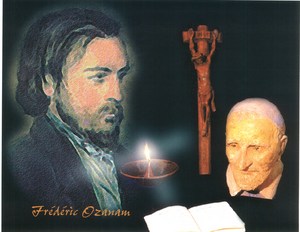 Catholics of a certain vintage remember the Saint Vincent de Paul Society --whose motto is "Seeking Charity and Justice-- organizes people to respond to the human and spiritual needs of our neighbor. The Society is getting new life with a new leader. The Gospel is still changing people's lives.
Catholics of a certain vintage remember the Saint Vincent de Paul Society --whose motto is "Seeking Charity and Justice-- organizes people to respond to the human and spiritual needs of our neighbor. The Society is getting new life with a new leader. The Gospel is still changing people's lives.In case you didn't know it, there are levels of happiness. You also may not know that God wants us to be happy in this life. Period. Can we open our eyes to what true happiness is?
Four levels of happiness that we encounter in our experience:
- happiness in a thing: I need a steak and a bourbon; I need that vacation
- problem: short-termed pleasure: the flashy new toy
- we are created more than a designer purse:
- who's measure do we use for happiness?
- what do we really ask God for?
2. as persons we are more than comparative advantage, but we compare ourselves with others
a. problem: the "advantage" has a limitation; it's effectiveness is not long-lasting nor does it account for the truth of who we really are as persons made in God's own image
3. finding joy in a sincere gift of self ... to a point
- problem: when the person to whom our joy is directed leaves, then what happens? Was our serving really sincere? What are the motivations in looking for joy in serving?
- we are restless until our hearts rest in the Lord
- God thirsts for you to thirst for Him
- what does it do to God when we thirst for a designer purse more than for God?
- why does a created thing take the priority over the creator?
We are meant, by God, to be happy in this life and in the next. You may be asking yourself: What are the requirements for attaining true happiness?
The saints
(Augustine, Benedict, Dominic, Francis, Ignatius and Philip Neri) remind us of
something crucial in the spiritual life, indeed, our life right now: we need to
exercise the virtue of gratitude because of our dependence on God. Gratitude reminds that we are in need of grace but also to give of ourselves to another. Saint Thomas
Aquinas teaches that gratitude is closely connected to the cardinal virtue of
justice, by which we give what is due to others. But with gratitude there is actually a
holy exchange between two people. One person benefits from a good act of another but
also wants to repay the benefaction. Rahner spoke of giving alms at Mass as a way of being involved in the good works of the Church when giving personal time is not possible but no less important because while there is some sort of a bond among the pastor, the benefactor and beneficiary it is only made stronger because real faces are behind the dollar. Think of the times when we write a thank
you note, make a promise of a deeper connection in friendship, or even the
promise spiritual works of mercy. I frequently write, "know that you are in my
prayers" to remind me and the person I am writing that I may not be able to
give something material in return, but I can make a sacrifice of gratitude
before God on behalf of another because of friendship. Gratitude and justice is
rooted in charity, in love for another, because of the Other. I think of Blessed John Paul II's insistence that we ought to make "a sincere gift of self."
Saint Ignatius tells us that to be ungrateful is a sin. Imagine if we account for acts of ingratitude in our daily examination of conscience even in Confession. How is it that today I can make a sincere gift of myself? Lent is a time to recall the concrete times we've been grateful and made a promise to pray for another.
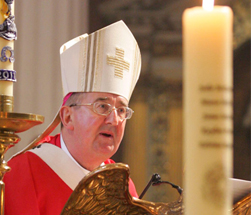 The apostle of change for good in the Church in Ireland today is Archbishop Diarmuid Martin, 66, the archbishop of Dublin. His Grace has a very tough job: healing the Church in Ireland following the devastating reality of sex abuse of children by the Catholic clergy. He acts according to his conscience and faith in Christ to open the doors to speaking about such heinous things; none of other bishops in Ireland have done so.
The apostle of change for good in the Church in Ireland today is Archbishop Diarmuid Martin, 66, the archbishop of Dublin. His Grace has a very tough job: healing the Church in Ireland following the devastating reality of sex abuse of children by the Catholic clergy. He acts according to his conscience and faith in Christ to open the doors to speaking about such heinous things; none of other bishops in Ireland have done so. Many of say that conscience rights is under attack. And with good reason. Take for instance the US Senate's recent rejection of conscience rights viz. President Obama's healthcare fiasco. So, a reasonable question is what the understanding of the role of conscience in moral decision making?
The Catechism of the Catholic Church (par. 1790-93) states the following about erroneous judgement:
A human being must always obey the certain judgment of his conscience. If he were deliberately to act against it, he would condemn himself. Yet it can happen that moral conscience remains in ignorance and makes erroneous judgments about acts to be performed or already committed.
"Building a New World" is new initiative Interdisciplinary Centre for Social Communications of the Pontifical Gregorian University (Rome, Italy) beginning today, Friday, 2 March.
This project is focused on film and the power film has in our lives. The premise is: a good film liberates, forms and calls us to a new way of seeing and engaging in reality. Therefore, the good people at the Gregorian are exploring how a good movie or documentary can invite people to greatness through the imagination and research how a poorly written movie with mediocre images can severely handicap one's openness to the true, the beautiful and the good. Just think of the good Father Robert Barron's "Catholicism" project is doing for those learning the Catholic faith for the first time or those renewing their faith; or how damaging "The Deputy" was to to the person of Pope Pius XII and the rest of the Church.
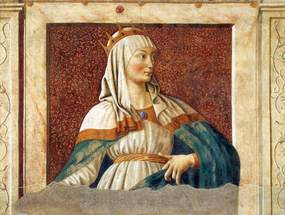
Lent is a perfect time to pray more intensely. It is a seen as a time for greater discipline that may also bear fruit in other times of the year. Yesterday's reading of Scripture for Mass had us focus on penance. Today, the Church gives us good example of asking God for the things we need. Queen Esther is our liturgical protagonist (aside from God, that is) in interceding for others.
What is prayer of intercession? Well, prayer of intercession is known along side other types of prayer like blessing and adoration, petition, intercession, thanksgiving and praise.
The Catechism teaches us that Jesus practiced intercessory prayer in praying to His Father for all of us. We believe this is what the Holy Spirit does for us and for the whole world. This type of prayer is practiced by priests especially when they offer the Sacrifice of the Mass and pray the Divine Office. The laity exercise the priesthood of the believers by virtue of the sacraments of Baptism and Confirmation by offering a prayer for another. The saints do intercessory prayer in approaching the Throne of Grace when we ask them to.
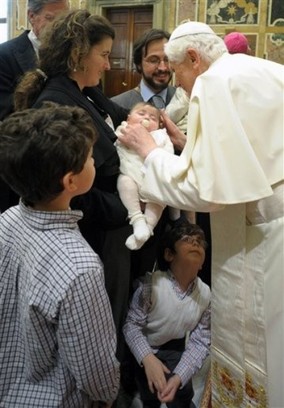
As Queen Esther asked God for grace to follow Him more closely, so we do the same....
The Pope asks us to join him during the month of March in praying for women and for those face the trial of discrimination.
The general intention
That the whole world may recognize the contribution of women to the development of society.
The mission intention
That the Holy Spirit may grant perseverance to those who suffer discrimination, persecution or death for the name of Christ, particularly in Asia.


